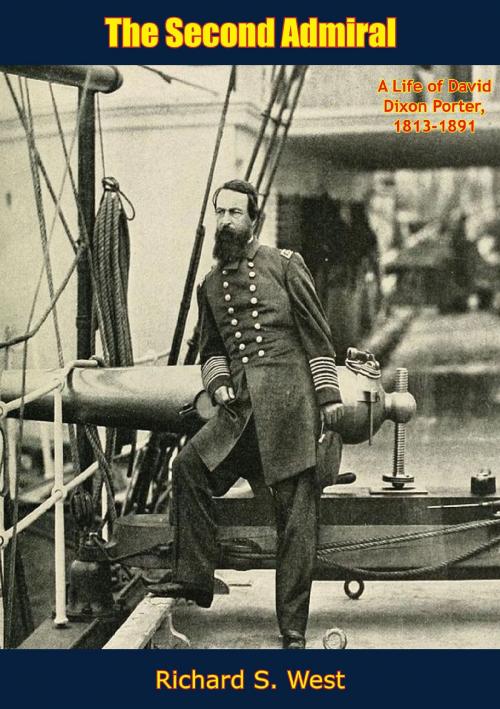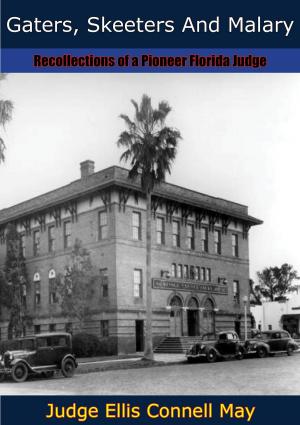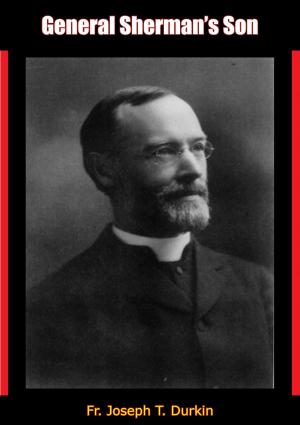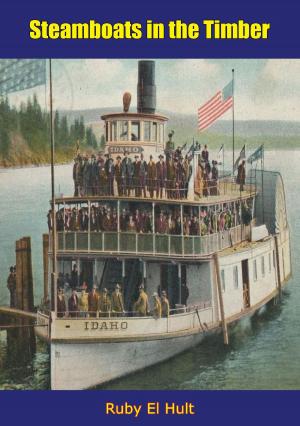The Second Admiral
A Life of David Dixon Porter, 1813-1891
Nonfiction, History, Modern, 19th Century, Americas, United States, Civil War Period (1850-1877), Military| Author: | Richard S. West | ISBN: | 9781789121193 |
| Publisher: | Papamoa Press | Publication: | April 3, 2018 |
| Imprint: | Papamoa Press | Language: | English |
| Author: | Richard S. West |
| ISBN: | 9781789121193 |
| Publisher: | Papamoa Press |
| Publication: | April 3, 2018 |
| Imprint: | Papamoa Press |
| Language: | English |
A DEFINITIVE BUT HIGHLY EXCITING LIFE OF ONE OF THE MOST COLORFUL AND HITHERTO NEGLECTED FIGURES IN AMERICAN HISTORY
David Dixon Porter (1813-1891) was a U.S. Navy admiral and a member of one of the most distinguished families in the history of the U.S. Navy. Promoted as the second U.S. Navy officer ever to attain the rank of admiral, Porter helped improve the Navy as the Superintendent of the U.S. Naval Academy after significant service in the American Civil War.
Porter began naval service as a midshipman at the age of 10 under his father, Commodore David Porter, on the frigate U.S.S. John Adams. He served in the Mexican War in the attack on the fort at the City of Vera Cruz, commanded an independent flotilla of mortar boats at the capture of New Orleans, and later advanced to the rank of (acting) rear admiral in command of the Mississippi River Squadron, which co-operated with the army under Maj.-Gen. Ulysses S. Grant in the Vicksburg Campaign.
After the fall of Vicksburg, he led the naval forces in the difficult Red River Campaign in Louisiana. Late in 1864, Porter was transferred from the interior to the Atlantic coast, where he led the U.S. Navy in the joint assaults on Fort Fisher, the final significant naval action of the war.
Porter worked to raise the standards of the U.S. Navy in the position of Superintendent of the Naval Academy when it was restored to Annapolis. He initiated reforms in the curriculum to increase professionalism. In the early days of President Grant's administration, Porter was de facto Secretary of the Navy. When his adoptive brother David G. Farragut was advanced from rank of vice-admiral to admiral, Porter took his previous position; likewise, when Farragut died, Porter became the second man to hold the newly created rank of admiral. He gathered a corps of like-minded officers devoted to naval reform.
A DEFINITIVE BUT HIGHLY EXCITING LIFE OF ONE OF THE MOST COLORFUL AND HITHERTO NEGLECTED FIGURES IN AMERICAN HISTORY
David Dixon Porter (1813-1891) was a U.S. Navy admiral and a member of one of the most distinguished families in the history of the U.S. Navy. Promoted as the second U.S. Navy officer ever to attain the rank of admiral, Porter helped improve the Navy as the Superintendent of the U.S. Naval Academy after significant service in the American Civil War.
Porter began naval service as a midshipman at the age of 10 under his father, Commodore David Porter, on the frigate U.S.S. John Adams. He served in the Mexican War in the attack on the fort at the City of Vera Cruz, commanded an independent flotilla of mortar boats at the capture of New Orleans, and later advanced to the rank of (acting) rear admiral in command of the Mississippi River Squadron, which co-operated with the army under Maj.-Gen. Ulysses S. Grant in the Vicksburg Campaign.
After the fall of Vicksburg, he led the naval forces in the difficult Red River Campaign in Louisiana. Late in 1864, Porter was transferred from the interior to the Atlantic coast, where he led the U.S. Navy in the joint assaults on Fort Fisher, the final significant naval action of the war.
Porter worked to raise the standards of the U.S. Navy in the position of Superintendent of the Naval Academy when it was restored to Annapolis. He initiated reforms in the curriculum to increase professionalism. In the early days of President Grant's administration, Porter was de facto Secretary of the Navy. When his adoptive brother David G. Farragut was advanced from rank of vice-admiral to admiral, Porter took his previous position; likewise, when Farragut died, Porter became the second man to hold the newly created rank of admiral. He gathered a corps of like-minded officers devoted to naval reform.















